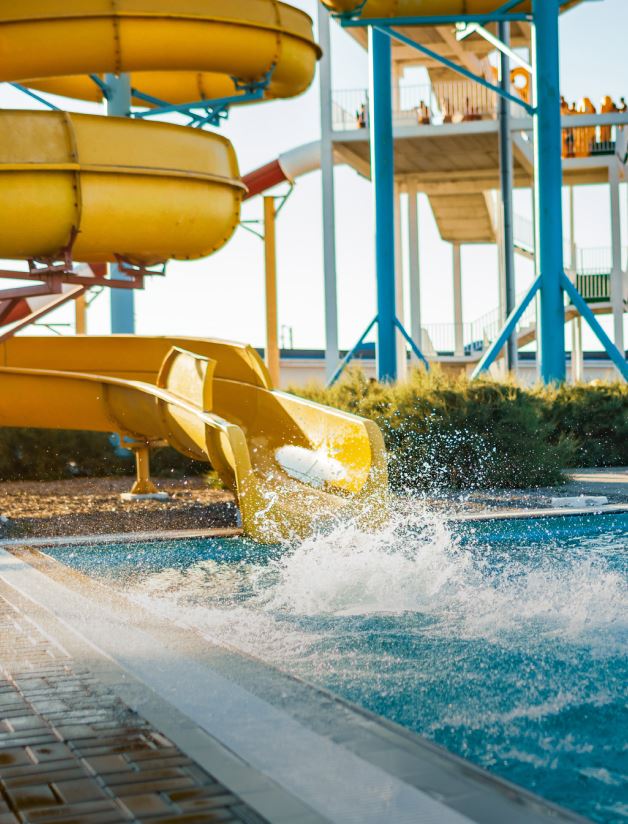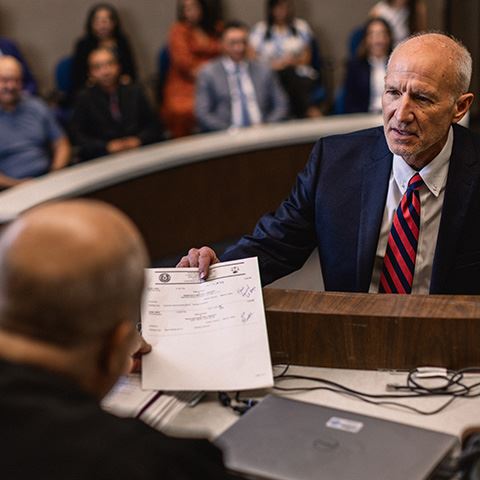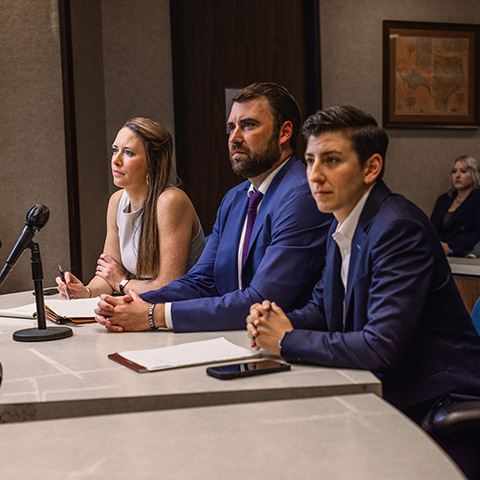Corpus Christi Pool and Water Park Accident Attorneys
Fighting for Pool and Water Park Accident Victims in Corpus Christi, TX

Pool and water park accidents can be especially catastrophic, as they frequently involve children and result in severe injuries or even fatal injuries. The cheerful ambiance of these places can quickly turn tragic when safety precautions are not strictly adhered to or when faulty equipment comes into play. The devastating effects of these accidents resonate beyond the immediate event, leaving enduring scars on victims and their families.
If someone you love drowned or you suffered aquatic injuries, our dedicated team at Hilliard Law is here to enforce your rights and help you seek justice. Our Corpus Christi pool and water park accident lawyers can help you hold responsible parties accountable and secure fair compensation for your losses. Taking legal action in these situations can also help prevent future tragedies.
If we take your case, you will pay no legal fees unless we win.
Schedule a free initial consultation to discuss your legal options by calling (866) 927-3420 or filling out our online contact form.
Common Causes of Aquatic Accidents in Corpus Christi, TX
Swimming pool laws typically apply to a wide range of water-based facilities, all of which are expected to adhere to a certain level of safety standards. Unfortunately, these standards are not always followed or enforced, increasing the likelihood of aquatic accidents. Note that placing a warning sign at the entrance to a facility does not actually release the property owner from liability if they do not meet state and federal requirements governing pool safety.
Drownings and other water-based accidents can happen in any private or commercial facility that features a pool, including:
- Apartment complex pools
- Hotel and resort pools
- Private pools and hot tubs
- Spas
- Water parks
Our Corpus Christi pool and water park accident attorneys are prepared to fight for you if you suffered injuries because of:
- Broken pool ladders or handrails. Broken pool ladders and handrails pose a significant hazard in water-based facilities, contributing to many accidents each year. These key safety features facilitate safe entry and exit from pools, acting as a support system to prevent slips and falls on wet surfaces. When ladders or handrails are broken, unstable, or absent, people attempting to enter or exit the pool may lose their balance, resulting in slips, falls, and potential injuries. These can range from minor bruises or lacerations to more serious outcomes such as fractures, concussions, or spinal injuries. The absence of these safety features can make pool access extremely risky, particularly for the elderly, young children, or individuals with mobility issues. A neglected ladder or handrail not only signifies a breach of safety regulations but also indicates a disregard for patron safety.
- Cloudy or murky water. Cloudy or murky water poses a significant and often overlooked risk in water-based facilities, contributing to the potential for accidents. When water clarity is compromised, it becomes challenging for lifeguards or supervisors to identify potential dangers or spot those in distress under the water's surface.
- Faulty safety barriers or gates. Broken or ineffective fences and gates can significantly contribute to water-based accidents, particularly in the case of unsupervised children gaining access to pool areas. Despite being passive safety features, fences and gates serve as the first line of defense in preventing unauthorized or unsupervised access to pools. They are especially critical in residential settings and other areas where constant adult supervision may not be possible.
- Improperly maintained safety equipment. Water-based facilities rely on various safety devices, from life vests and flotation devices to rescue equipment, to ensure the safety of their patrons. When this equipment is not properly maintained, it can fail when needed most, leading to severe accidents and injuries. When safety equipment fails due to improper maintenance, it is often a clear indication of negligence on the part of the facility's management.
- Inadequate supervision. Inadequate supervision is a leading cause of drownings and other water-related accidents, particularly in facilities attended by children and inexperienced swimmers. Lifeguards and supervisors play a crucial role in maintaining the safety of water spaces. They are trained to identify possible signs of distress or risky behavior, enabling them to act swiftly to prevent potential accidents. However, in situations where lifeguards are absent, inattentive, or inadequately trained, the risk of accidents significantly escalates. Drowning, for instance, often happens silently and swiftly, with victims unable to call for help or attract attention. Without a vigilant supervisor on duty, such instances may go unnoticed until it's too late. Inadequate supervision can also lead to non-fatal accidents such as slip and fall incidents, collisions, or injuries from diving into shallow water.
- Malfunctioning or defective drain systems. Defective drain systems in water-based facilities can lead to serious and even fatal accidents. These systems, often found at the bottom of pools, hot tubs, and other water features, serve to filter and circulate the water. However, if the drain system is faulty, it can create a powerful suction effect. Swimmers, especially small children or those with limited swimming ability, can then become entrapped by this suction, trapping them underwater and putting them at risk of drowning. This is especially true if the drain cover is broken or missing, as this can increase the strength of the suction. Furthermore, hair or limbs can also become entangled in a faulty drain system, posing another significant risk.
- Unsafe water park rides. Rides and slides at water parks can become potential hazards if they are not in perfect working condition. Slides with structural issues, for example, can cause patrons to lose control or be ejected, leading to dangerous falls or collisions. Rides that are not properly assembled might not operate as intended, leading to abrupt stops, derailments, or even ride collapse. A lack of clear instructions or safety guidelines may lead to misuse of the ride, increasing the chances of accidents, while an operator who is not properly trained or who is distracted may fail to notice potential issues or may operate the ride in a way that is unsafe.
Safety Requirements for Texas Public Pools and Spas
Under Texas law, public pools and spas must adhere to a set of safety requirements designed to protect the welfare of all users. These mandates ensure that facilities maintain high safety standards and minimize potential threats. Our Corpus Christi pool and water park accident lawyers are familiar with the applicable laws and can determine liability when you or someone you love suffers aquatic injuries.
Here are some of the essential safety features required by law:
- Anti-entrapment devices. To prevent entrapment accidents, pools and spas must be fitted with anti-entrapment grates to cover the drain outlets. The grates work by dispersing the flow of water to reduce suction.
- Chemical balance. Regular testing and maintenance of chemical levels is mandatory. Proper chemical balance prevents the spread of water-borne diseases and ensures clear visibility in the water.
- Clearly marked depths. To prevent diving accidents, depths must be clearly marked at the shallow end, deep end, and breakpoints between different depths.
- Emergency phone. A working telephone or other communication device must be available within the pool enclosure for emergency use.
- Fencing and gates. Public pools and spas must be enclosed by fences or walls not less than 48 inches in height to prevent unauthorized access. Gates must be self-closing and self-latching, equipped with locks to ensure safety.
- Life-saving equipment. Facilities must be equipped with life-saving equipment, including a ring buoy and a rescue pole. These should be in good condition and easily accessible in case of emergencies.
- Pool ladders and handrails. Pools must have ladders or steps on both shallow and deep ends to allow safe entry and exit from the pool. Handrails are also required, providing additional support and stability.
- Safety signage. Pools must have clear safety signs, including signs explaining pool rules, “no diving” signs in shallow ends, and signs reviewing emergency procedures.
Do not wait to get legal advice if you or someone you love was injured in a swimming pool or water park accident.
Call (866) 927-3420 or fill out an online contact form today.



Real Results ReaL Justice
-
Record-Setting$575Wrongful Death
Million Settlement*Hilliard Law attorneys represented numerous injury victims and the families of those killed in accidents caused by GM’s defective ignition switch and their concealment of safety defects.
-
$310Wrongful Death
Million VerdictHilliard Law attorneys secured a $310 million verdict against “Funtime” Handelsgesellschaft M.G.H., the manufacturer of the defective Orlando FreeFall attraction at ICON Park, for the family of Tyre Sampson.
-
$50Class Action
Million Settlement*Mr. Hilliard was the lead class counsel in Haese v. H&R Block, a class action lawsuit involving every Texan who received a rapid refund from H&R Block (approx. 300,000 plaintiffs). He assisted other class counsel in forcing H&R Block to disclose it received kickbacks for arranging loans between its tax preparation clients and predatory lenders.
-
$50Wrongful Death
Million SettlementIn September 2021, Hilliard Law attorneys secured a $50 Million settlement for the family of a man who died in a commercial trucking accident.
-
$33Traumatic Brain Injury
Million VerdictThe Hilliard Law trial team won a $33M product liability case against a golf-car company, involving a golf cart that tipped over on a child causing a severe traumatic brain injury.
-
$33Work Injury
Million AwardWith the representation of Hilliard Law, two delivery drivers who were shot while completing a delivery were awarded $33 million through an arbitration panel.
Recoverable Damages Associated with Swimming Pool Accidents and Injuries in Corpus Christi, TX
When you or someone you love suffers injuries because of the negligence of a pool, spa, or water park owner, you typically have the right to seek compensation for damages through a personal injury claim. At Hilliard Law, we understand how to successfully approach these cases, and our goal is to get you the full compensation you are entitled to under the law.
Our Corpus Christi pool and water park accident attorneys can fight to get you just compensation for all losses, including:
- Medical costs
- Lost income
- Lost earning potential
- Pain and suffering
- Mental distress
- Wrongful death benefits (if applicable)


It’s our mission to hold the powerful accountable for their wrongdoing. Reach out to our team immediately regarding your case to schedule a free attorney consultation today.


